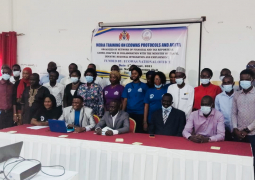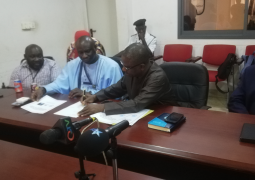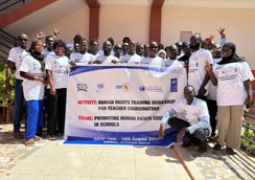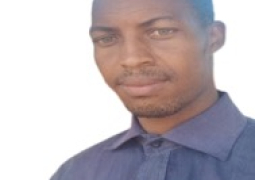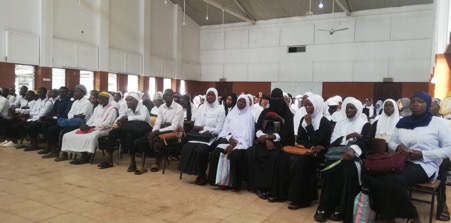
The day's event held at Gambia College, Brikama Campus, seeks to equip students with the requisite knowledge and skills to be able to indentify indicators of recruitment or pin point agents. It was also meant to expose students to the role and mandates of the agency, various elements of trafficking-in persons to be able to understand what would be required of a typical trafficking-in persons case compared to what would be commonly referred to as smuggling of migrants.
In her introductory remarks, Isatou Dabo, executive director of the National Agency Against Trafficking-In Persons (NAATIP),explained the role and mandate of her institution, saying NAATIP is mandated under the 2007 Trafficking-In Persons Act to deal with all issues of Trafficking-in Persons in the country ranging from investigation into trafficking cases and forwarding all investigation reports to the Ministry of Justice for opinion writing and prosecution of alleged offenders.
Dabo explained the different mode and operations revolving trafficking in persons, adding that practice has taken a new dimension, which now involves organ harvesting.
She also talked about the cost involved to safely return victims of trafficking and urged all to be aware of this nefarious business.
Dabo expressed concern that over the years, the issue of trafficking-in persons is on the increase, reminding that on a daily basis, recruiters all around the globe are becoming very creative in their ways of recruiting persons either for sexual exploitation orf or labour purposes.
Also speaking Tijan Faal, an investigator at NAATIP, highlighted some tips in identifying victims of trafficking.
He, however, explained that it is the duty of state to ensure the full protection and security of its citizens.
He disclosed that human trafficking is becoming a phenomenon that tears the fabric of societies, saying fighting Trafficking-in Persons is like fighting money laundering.
He disclosed victims of trafficking are mostly visible at frontiers, markets, lodges and minefields in some countries.
Faal noted that this practice, which is a new form of organised-crime, is ran by powerful syndicates, who work with agents on the ground.
The menace, he added, is such that it has become a worldwide phenomenon that calls for all hands on deck to combat it.
Faal explained that humanity is too valued to undergo such degrading maltreatment against their own will.
He thus stressed the need for more advocacy and called on all to always report cases of trafficking to the authorities.
The event wrapped up with questions and answer sessions between students and NAATIP officials on some critical issues surrounding the protection of informants.


